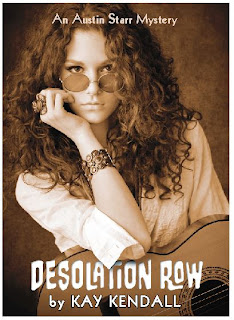Sharon Wildwind
What’s the difference between a brand and a platform? I should ask what’s the difference between a brand, a platform, and a platform because there are now two common definitions for platform and one looks very different from the other.
The original meaning I learned for platform was that it was where real life met writing. We’re all interested in something; some of us may even be obsessed. In a nice way, of course. Platforms come out of our work, our causes, our hobbies, and our personal interests.
A platform connection is vital because selling ourselves as a writer no longer works. I live in a big city. So do hundreds of other writers. If I called a newspaper, a radio or television station, the people won’t be interested that I have a new book. I stand a better chance of being noticed if I can offer a story with a platform connected to it.
I’m interested in local history and have unearthed a fascinating story about a hotel loaned to the Red Cross during World War I to use as a convalescent hospital. The Red Cross minutes, photos, and other material is in a local archive. The 100th anniversary of the 1914 declaration of war rolls around in eighteen months, and I bet I can get a couple of nibbles if I say, “I know a great story about a convalescent hospital in Calgary during the war.” That’s marketing using my platform.
A brand is the thread that runs through everything we write. Discovering my brand was fun. The woman who helped me find it suggested using pop culture to identify what my filters trapped. What movies did I like? Why? What photographs always caught my attention? What newspaper articles? What pop songs? What cliches appealed to me, even though I knew they were cliches and would never use them in writing? What quotes inspired me, and why? Who were my heroes and heroines? Out of that we built a list of values. Those values became my brand.
Platform (the second version) has also come to mean where in the vast social media world are we going to put our time and effort. The public speaker and author, Michael Hyatt, wrote a great explanation of that kind of platform. His question: Do You Have a Personal Platform Plan for 2013? His idea is that we should think of ourselves as a country who is sending our ambassadors to other countries.
All ambassadors need a place to call home. We own and control our media homes because we spend the most time and energy making home look and feel right. We also need to establish embassies: places where we have a consistent presence. These are places of outreach and can be used to drive traffic back to our home base. Finally, we need to visit outposts: places where show up infrequently, possibly for outreach but for exploration as well.
Dividing my social media sites into three lists—home, embassies, and outposts—helped me identify where I wanted to spend the most time and energy, and not feel guilty if I visited my outposts only three or four times a month.
Remember how characters should have both public and private stakes? So should writers. Platforms are our public stakes, the way we connect to non writers. Brands are our private stakes. They're at the heart of what we mean when we write the kind of story we'd like to read.
We're good at raising stakes for our characters. How about we raise a few for ourselves as well? Is it time to take another look at our platforms and brands?
Remember how characters should have both public and private stakes? So should writers. Platforms are our public stakes, the way we connect to non writers. Brands are our private stakes. They're at the heart of what we mean when we write the kind of story we'd like to read.
We're good at raising stakes for our characters. How about we raise a few for ourselves as well? Is it time to take another look at our platforms and brands?
Quote for the week:
Creativity is the power to connect the seemingly unconnected.
~William Plomer (1903 – 1973), South African and British novelist, poet, and literary editor

































